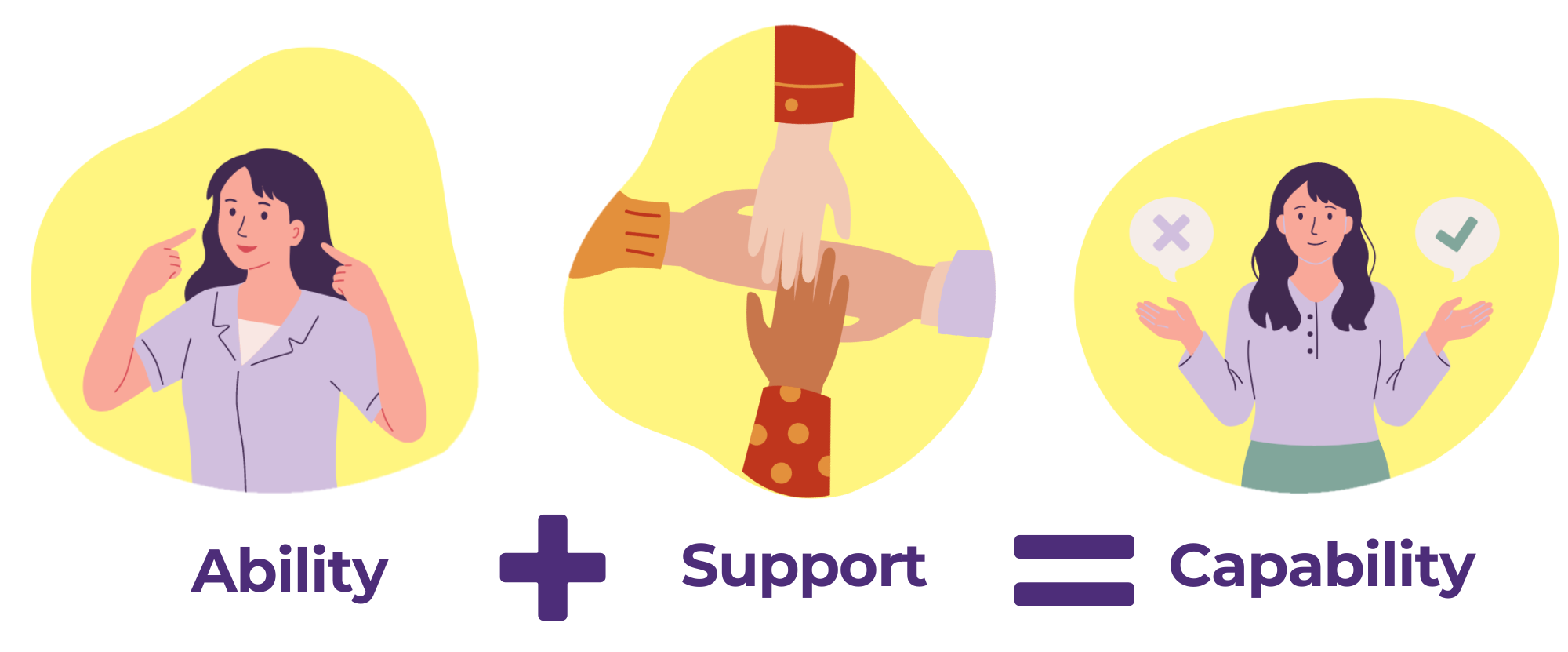Work in Progress! We are building a new website about supported decision-making. We haven't finished checking the content yet. We want to make sure everything is clear and correct before we share it. Please come back soon to see the finished website.
Everyone should get the support they need to make decisions
Everyone can make their own choices when they get the right help. Everyone should have access to this support.
A change in thinking
The UN Disability Convention says that
- Everyone has the right to make decisions about their own life.
- Everyone has the right to get the support they need to do this.
We used to ask
- Can this person understand and make this decision on their own? (Do they have mental capacity?)
The UN Disability Convention says it is more important to ask
- What support does this person need to understand, communicate, and participate in this decision?
Decision-making capability
In a supported decision-making approach, we think about decision-making capability. Capability means being able to get things done.
- We start by focusing on what the person can do rather than what they can’t do.
- Each person has their own unique decision-making abilities.
- Different decision-making abilities can be turned into decision-making capability with support and adjustments.
This approach is very practical and positive. The focus is on what support the person needs to make the decision.

One decision at a time
The amount of support needed can vary from decision to decision. A person may be comfortable making decisions in one area of life but want support for other types of decisions. A person may want more support for a decision they find difficult or when they feel overwhelmed.

Ben's Story
-
- His thoughts are racing
- He can't sleep
- He has lots of energy and feels restless
- He is exercising a lot more
- He is spending more money than usual.
What if the supporter has a formal legal role?
A special support role can be set up in a legal document when a person is assessed as lacking capacity. The supporter can legally communicate or make decisions for the person.
- Sometimes this role is set up ahead of time as an Enduring Power of Attorney (EPOA).
- Sometimes this role is set up by the courts. They may be called a Welfare Guardian or Property Manager / Property Administrator. These roles are also called Adult Legal Guardians.
Supported decision-making is still important when the supporter has a formal legal role. The law expects that supporters in these roles will
- Help the person to make decisions
- Help the person to develop their decision-making skills
- Consult about decisions as far as possible
Remember that
- Everyone has a right to the support they need to make decisions
- Support can improve decision-making capability.
This is true for everyone. This is true whether or not the supporter has a legal role.
Find out more
Decision-making capability
- “A New Paradigm”: external This is the paper by Michael Bach and Lana Kerzner that first put forward the idea of decision-making capability
- “Looking differently at decision-making capacity”: externalA video with Michael Bach.
- “Rethinking Capacity”: external In this video, Michelle Browning explains capacity and decision-making capability
- “Removing barriers”: external This booklet explains the rights of disabled people to changes that support equal participation.
Formal legal support roles
- More links: You can find links to more information about legal support roles in the resource section of this website.
- Review: externalThe Law Commission has a summary of their review of adult decision-making capacity law
- About the UN Disability Convention: This page on our website talks more about the UN Disability Convention.